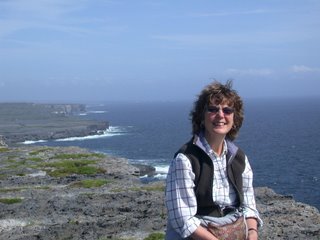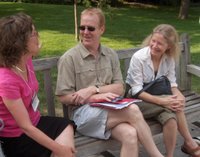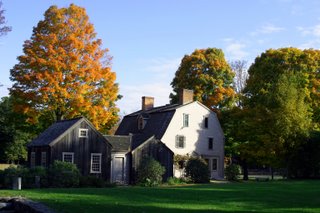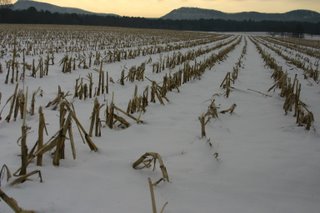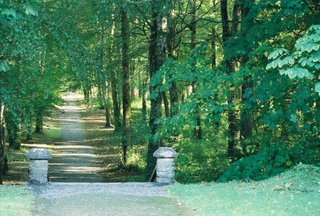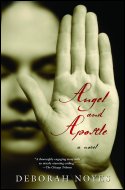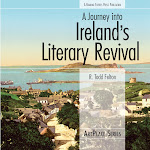This house was home to Ralph Waldo Emerson from 1834 to 1835 and to Nathaniel and Sophia Hawthorne from 1842-1845.
While Emerson lived here with his mother, he wrote the book that quickly became one of the core documents of Transcendentalism: Nature, The book begins with this remarkable challenge:
The forgoing generations beheld God and nature face to face; we, through their eyes. Why should not we also enjoy an original relation to the universe? Why should not we have a poetry and philosophy of insight and not of tradition, and a religion by revelation to us, and not the history of theirs?
Then follows an Emersonian, and therefore Transcendentalist solution: go spend time in nature, and see what new ideas this brings.
Embosomed for a season in nature, whose floods of life stream around and through us, and invite us, by the powers they supply to action proportioned to nature, why should we grope among the dry bones of the past?
It seems particularly telling that Emerson wrote these words, with their central metaphor of “the flood of life,” looking out at the river from the window of his study. As he states, however, “to go out into solitude [to achieve our ‘original relation’], a man needs to retire as much from his chamber as from society.” Emerson made good on this premise by going out daily to walk the hills, forests, and meadows of his chosen town. He let neither the elements nor the demands of society keep him from his walks.
Emerson is also clear about the benefits of the move into nature:
In the woods, we return to reason and faith. There I feel that nothing can befall me in life, -- no disgrace, no calamity, (leaving me my eyes,) which nature cannot repair. Standing on the bare ground, -- my head bathed by the blithe air, and uplifted into infinite space, -- a mean egotism vanishes. I become a transparent eye-ball; I am nothing; I see all; the currents of the Universal Being circulate through me; I am part or particle of God.
It was in these passages from Nature that Transcendentalism first came alive for me, and I structured the book around what I view as Transcendentalism’s central quest: to forge an original relationship with the universe or, as Emerson puts it, to behold “God and nature face to face.”
So, what quickly became interesting to me was how this group of writers, philosophers, poets, activists and dreamers conducted their quests. Where did they go for that “face to face” interaction? How does one forge one’s own unique relationship with the universe?
For Hawthorne, one way is to work in the garden. The garden at the Old Manse is a replica of the one planted by Henry David Thoreau for the Hawthornes as a wedding present. Hawthorne absolutely loved it.
I used to visit and revisit it a dozen times a day, and stand in deep contemplation over my vegetable progeny with a love that nobody could share or conceive of who had never taken part in the process of creation.
It was truly a present that kept on giving. And it seems wonderfully appropriate that this replica garden continues to give. It was planted by the non-profit group Gaining Ground who uses the “vegetable progeny” to feed the hungry and less-fortunate of Boston.
And Hawthorne did not limit himself to the garden. In the introduction to his collection of short-pieces called Mosses from an Old Manse, Hawthorne rhapsodizes about the Concord River, calling it “the river of peace and quietness.”
(I was also gratified to read that Hawthorne lived there for three weeks before he could tell which way the current flows because I thought for the longest time that the river flowed in the opposite direction.)
Much of Hawthorne’s introduction to the Old Manse, as well as his journals from the time, is filled with these wonderful descriptions of natural splendor: the orchards, the fields, and breezes that blow through them. These passages are especially powerful when contrasted against his descriptions of the “dead books” and “dreary trash” he finds in the attic library of the Manse.
Hawthorne also reserved great praise for his study: “there was in the rear of the house the most delightful little nook of a study that was ever afforded its snug seclusion to a scholar. It was here that Emerson wrote Nature.”
And, while Hawthorne certainly poked fun at the Transcendentalists and never thought of himself as belonging to any movement, many of the central tenets of Transcendentalism (awareness of the creative and imaginative power of nature, the breaking away from form and tradition, and the emphasis on individual experience) can be see in stories like “Young Goodman Brown” and novels such as The Scarlet Letter.
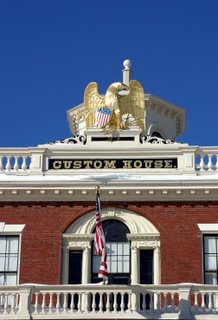
In the opening essay of The Scarlet Letter, Hawthorne addresses the ennui he feels as a government employee, directly contrasting it against what he feels in nature:
It was not merely during the three hours and a half which Uncle Sam claimed as his share of my daily life, that this wretched numbness held possession of me. It went with me on my sea-shore walks, and rambles into the country, whenever – which was seldom and reluctantly – I bestirred myself to seek that invigorating charm of Nature.
It is these passages, and many more like them scattered throughout Hawthorne’s works, along with his close connections to major Transcendentalist figures like Henry David Thoreau, Elizabeth Peabody, and Charles Ripley, that allowed me to include him in this book.
But he was not the only one in Salem with Transcendentalists leanings. Certainly, there was Elizabeth Peabody, whose contributions to the movement have for so long gone unsung. But her story has recently been wonderfully told in Megan Marshall’s The Peabody Sisters, so hopefully she will get her due as one of the leading forces of not just the Transcendentalist movement, but American culture of the nineteenth century.
I also want to take a moment to talk about the Salem poet, Jones Very. Jones Very grew up, like Hawthorne, in Salem and went off to Harvard in the mid-1830’s. By 1838, he had come to the attention of Emerson, who had brought him to Concord to lecture in April of 1838.
By this time, Very had graduated from Harvard but stayed on as a Greek tutor and divinity student. During the summer of 1838, he began an essay on Shakespeare. At the same time, he was attempting to completely erase his identity in order to be an empty vessel for God’s light.
These two projects proved too much for him: the twenty-five year-old poet and scholar began to develop a reputation among the young undergraduates of Harvard for a madness that culminated in telling his student to “flee to the mountains, for the end of all things is at hand” and storming Professor Henry Ware Jr.’s rooms, asserting he was the second coming of Christ. When Ware questioned him, Very responded, “I had thought you did the will of the Father, and that I should receive some sympathy from you – But I now find that you are doing your own will, and not the will of your father.”
Not surprisingly, Harvard quickly let him go, and Very returned to Salem under the care of his younger brother, then a freshman at Harvard.
Although Very continued to channel God’s light and was given a month’s sojourn at the McLean Hospital in Cambridge for it, he remained relatively harmless and eventually lived out his life serving as a supply preacher.
But forging one’s own unique relation with the universe was not necessarily a solo adventure. You could go to Elizabeth Peabody’s bookstore on West Street to develop forge that relationship, particularly if you were coming to attend one of Margaret Fuller’s discussion groups or join the groups bandying about ideas for social reform.
Or you could go, as Nathaniel Hawthorne did, to Brook Farm and join their utopian community. Or join Bronson Alcott’s Fruitlands community just west of here in Harvard, Massachusetts.
Perhaps the most well known method to forge an original relationship to the universe was to move to Walden Pond and attempt to “front only the essential facts of life” as Thoreau did from 1845 to 1847.
His experiment in living the Transcendentalist quest, along with the record of it we know as Walden, has had perhaps the greatest impact of any of the Transcendentalist writings.
It is regularly quoted as the defining text for a wide variety of philosophical movements and radical thinkers. His words are regularly used for everything from yoga websites to articles on new technology.
But my favorite story of Thoreau’s influence is about a shy, lanky Irish boy whose father read Walden to him in the mornings before he trundled off to school. On summer vacation in the west of Ireland, this same boy then dreamed about moving to an island in the middle of a lake and living like Thoreau.
He even picked out the perfect island and spent a night reconnoitering it. As it turned out, the boy never lived out his dream, but he did write a poem about the island. The poem is called “The Lake Isle of Innisfree” and the boy is the Nobel Prize winning writer William Butler Yeats.
I tell that story, and more, in my next Roaring Forties Press book due out in February, A Journey into Ireland’s Literary Revival. See I told you I would come back to that.
Blatant self-promotion aside, this story speaks to one of the things that surprised me the most about Transcendentalism: the influence and interconnections between people. For example, just among the major Transcendentalist figures: Hawthorne met Elizabeth Peabody here in Salem, who had also worked for the Transcendentalist educator and philosopher Bronson Alcott, as did critic and writer Margaret Fuller. Bronson Alcott lived in Concord and was close friends with both Ralph Waldo Emerson and Henry David Thoreau. Thoreau was invited and came very close to living at Brook Farm where Hawthorne was before he married Elizabeth Peabody’s younger sister Sophia in a ceremony at Elizabeth Peabody’s West Street Bookstore, where Brook Farm was first dreamed up. And the Transcendentalist journal The Dial was published. By Margaret Fuller. And Emerson. It’s dizzying.
The other thing this book taught me was how human these philosophers were. As someone who grew up in California, and only studied the Transcendentalists from afar, I had the vision of these writers as a series of lofty and forbidding men with serious foreheads and Transcendent thoughts. They may be that, but they were also human.
One of my favorite Hawthorne stories is about his tendency to get caught up in the moment and forget the practical details of life: While planning his wedding, Hawthorne wrote to James Freeman Clarke, a liberal Unitarian minister to ask him, (a man he’d never met), if he would perform the ceremony.
Both Nathaniel and Sophia had read his sermons and valued his ideas and philosophy. Unfortunately, Hawthorne neglected to include any details about the wedding in the letter. He also forgot to add a return address or way to get in contact.
So the good minister, well-acquainted with Elizabeth Peabody’s bookstore, was able to do some investigative work and be at the wedding on time. I love this story because it is totally something I would do.
Another favorite story is about how, when the Hawthornes lived at the Old Manse, the river behind the house froze over and Emerson and Thoreau stopped by for a skate with Hawthorne. Think of it, three of America’s most important writers skating in the backyard like a bunch of schoolboys.
These are the stories that make both the literature and the place come alive for me. I would guess many of you feel the same and that idea underlies your commitment to this place.
So, as I leave you to your own quests, I urge you to walk with Thoreau and Emerson, garden with Hawthorne and Dickinson, I urge you to dream your own utopian communities like Bronson Alcott and Charles Ripley. And read. As Thoreau reminds us:
To read well, that is, to read true books in a true spirit, is a noble exercise, and one that will task the reader more than any exercise which the customs of the day esteem. It requires a training such as the athletes underwent, the steady intention almost of the whole life to this object. Books must be read as deliberately and reservedly as they were written.
I hope you enjoy this journey and read it as deliberately and reservedly as the spirit in which it was written. Thank you all very much for your wonderful attention. I will take some questions if you have some.

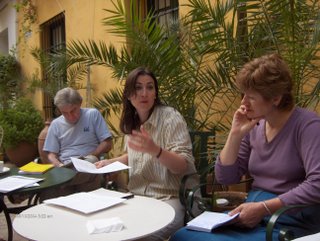 In researching my book on the Irish Literary Revival, I came across the itinerary for a trip to Ireland titled "Irish Literary Genius." It was with a program out of Toronto called Classical Pursuits. Although the timing didn't quite work out for me to go on that trip, I stored the information away for future investigation. Now, I'm intrigued. After a few conversations with founder Ann Kirkland, I see how Classical Pursuits is one of the leading programs in the growing movement in literary travel; the programs offered bring inquiring adults together to explore life's big questions in the context of the world's greatest wriers and artists.
In researching my book on the Irish Literary Revival, I came across the itinerary for a trip to Ireland titled "Irish Literary Genius." It was with a program out of Toronto called Classical Pursuits. Although the timing didn't quite work out for me to go on that trip, I stored the information away for future investigation. Now, I'm intrigued. After a few conversations with founder Ann Kirkland, I see how Classical Pursuits is one of the leading programs in the growing movement in literary travel; the programs offered bring inquiring adults together to explore life's big questions in the context of the world's greatest wriers and artists. 